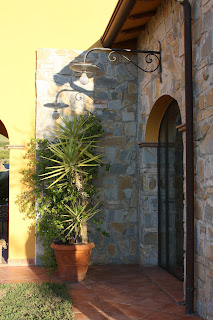Last night we got a nice little rain, about .6" It's trying to rain again this evening but I don't think it's going to make it, the clouds are moving off in the other direction.
I decided I would plant just a little bit more before I leave for vacation. If I'm lucky things will survive and I'll be a month ahead than if I wait until I come home.
When I was cleaning up the silt and leaf mold that washed down onto the patio and sidewalk I dumped it onto one of my garden beds. I decided it might be good for my root crops. I added some potash and some seaweed meal and loosened everything up.
This evening I planted a few fennel seeds, some Danvers carrots, parsnips and three different kinds of beets. Cylindra is a carrot shaped beet that is easy to slice for canning. In 2004 I ordered a mix of Heritage beets from
Bountiful Gardens. There was a large white beet in the mix from which I saved seeds, so I planted a row of them. I had some of the original Heritage mix left so I planted those too.
Here in the desert since water conservation is so important, I plant at the bottom of the furrow. That directs any rainfall straight to the plant roots. After I watered the seeds I covered the bed with my trusty old door and window screens to keep out the pesky quail and the neighbors cat.
When it looked like it wouldn't rain again today, I mixed up the rest of the open bag of cement and worked on the walls down in the creek bottom again. I worked on it a couple of hours early yesterday morning, too.
I've actually moved quit a bit of sand and rock the past couple of days. My mortar joints aren't very pretty but I think they will do the job. This wall follows the creek bank and the cement is mostly in the front face, with loose rock for back fill. Every once in awhile I lay a bigger rock that goes back farther to help tie things together.
All my life I have wanted to build a stone house. I still do. In fact working on this wall reminds me of how much fun I have doing this sort of work. And I'll certainly get in some practice in making nice mortar joints with this project!
Of course you can always use slip forms. This is where you use shallow forms, fill them with stone and cement and when the cement sets up you move the forms up the wall and do it again. Once the wall is completed you go back over the face of it and 'point' it, that is using a fine mortar mix and a small trowel you smooth out the joints and fill in any holes or gaps.
Or what these folks did; they just built a frame house and built stone walls on the outside of the frame. They covered the interior walls with sheet rock and it gave them a space to run their plumbing and electric lines.
People have been building with stone for thousands of years. Here in the southwest the Native Americans used rocks and mud, many of their pueblos are still standing 200-500 years later.
The same in Italy. I saw farm houses there with walls 18-24 inches thick, built by the farmers themselves. Rocks with at least one flat side are set on each side of the wall and the space in between is filled with mud and rubble. This is also a common building technique in many other countries, from Irish cottages to great English Castles.






















